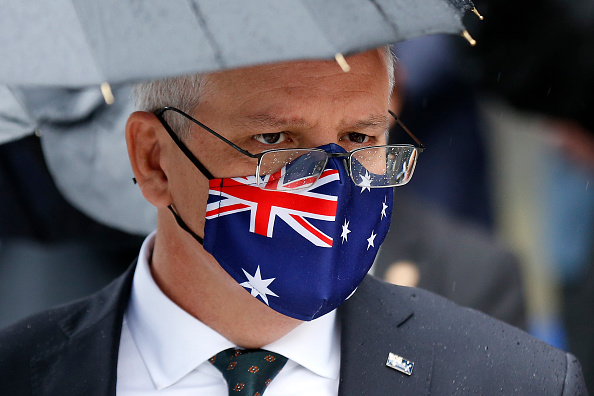CANBERRA, AUSTRALIA
National Cabinet met yesterday to discuss Australia’s response to COVID-19 and the Omicron variant, approaches to test, trace isolate and quarantine including the use of rapid antigen tests (RATs) and the vaccine rollout and booster programme.
The Chief Medical Officer, Professor Paul Kelly, provided an update on the spread of the Omicron variant. Omicron case numbers continue to increase in Australia and globally. Omicron continues to show greater infectivity than the Delta variant, but with much less severity in terms of hospitalisations, ICU and ventilated patients.
Since the beginning of the pandemic there have been 1,514,560 confirmed cases in Australia and 2,841 people have died.
Globally there have been over 333.4 million cases and over 5.5 million deaths, with 3,281,678 new cases and 9,162 deaths reported in the last 24 hours. The COVID-19 pandemic continues to surge in many countries around the world.
Lieutenant General John Frewen, DSC, AM, Coordinator General of the National COVID Vaccine Taskforce (Operation COVID Shield) provided a detailed briefing on the major expansion in Australia’s vaccination rollout.
Australia’s COVID-19 vaccine roll out continues to expand. To date 47 million doses of COVID-19 vaccines have been administered in Australia, including 332,808 doses in the previous 24 hours.
In the previous seven days, more than 1.9 million vaccines have been administered in Australia. More than 95.2% of the Australian population aged 16 years and over have now had a first dose of a COVID-19 vaccine, including over 99% of over 50 year olds and more than 99% of over 70 year olds.
More than 92.7% of Australians aged 16 years and over are now fully vaccinated including more than 97.5% of over 50 year olds and more than 99% of Australians over 70 years of age.
Over 5.7 million booster doses have been administered to over 28% of Australians. More than 53% of Australians aged 70 years of age and over have had a booster in the last 10 weeks since the booster program commenced.
More than 21% of 5-11 year olds have received a first dose of a COVID-19 vaccine in the first 11 days of the children vaccination program.
National Cabinet agreed to the new AHPPC guidance on Rapid Antigen Testing for Current High Community Prevalence Environment, saying rapid antigen tests are an important diagnostic tool to manage impacts on health system capacity, public health and safety, protect vulnerable Australians and minimise disruptions to daily life.
Rapid Antigen Tests are to be used for three purposes:
- As a diagnostic test as an alternative to PCR for those at high risk of having COVID-19
- To manage outbreaks
- To help early indication of cases in high risk settings
In a statement, Prime Minister Scott Morrison said the use of RATs to detect cases in high risk settings is recommended in residential aged and disability care settings where there is high community prevalence, healthcare settings managing very high risk patients (e.g. transplant ward, hematology unit, oncology ward, renal dialysis units) and other critical services (e.g. other parts of health care and emergency services).
Rapid Antigen Tests are not routinely recommended to detect cases early for other industries, businesses and organisations, he said.
National Cabinet will meet again on Thursday 27 January.



